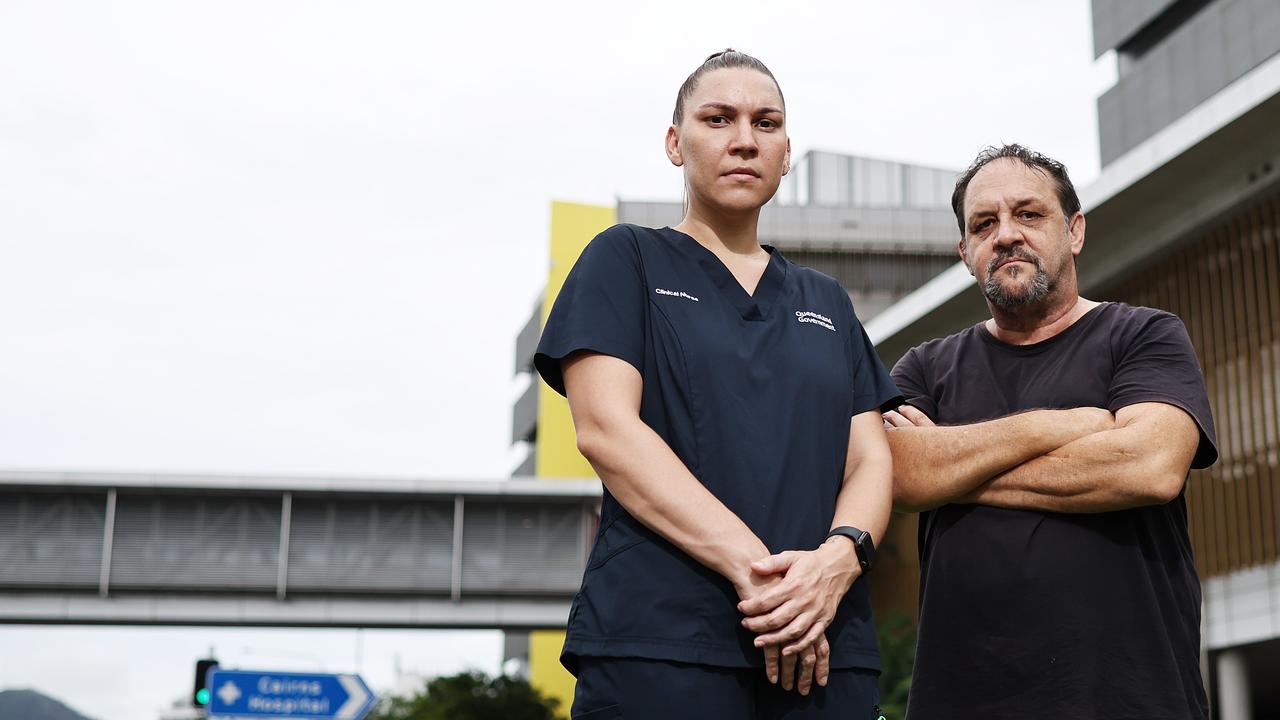Six months’ after catastrophic flood, mental scars emerge
The impact of trauma, loss and grief is emerging as the Far North hits the six month mark since the devastating post-Cyclone Jasper flood.
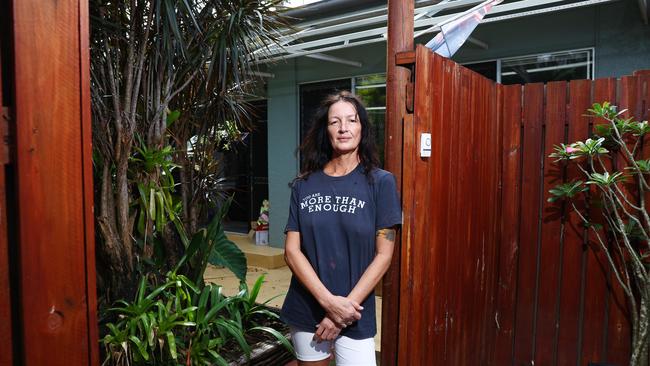
Cairns
Don't miss out on the headlines from Cairns. Followed categories will be added to My News.
Six months after post-Cyclone Jasper flooding sent water rushing through her home, Cairns Hospital nurse Melissa Hood is finally celebrating having a new hot water system.
Like many homeowners, prohibitive premiums meant Ms Hood’s Machans Beach property was not insured, and the road to recovery since that fateful December night has been arduous and mentally taxing.
Ms Hood, who has clinical mental health experience, said the impact of PTSD on the community was obvious, and while many prefer not to talk about their experience, the community hub and local sports club have proven valuable places for people to connect.
The unprecedented flood has prompted almost 10,000 insurance claims worth an estimated $354m, according to the Insurance Council of Australia.
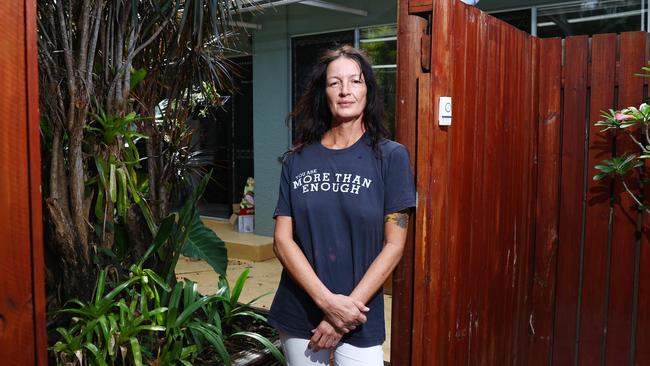
Tourism Tropical North Queensland estimated the loss of revenue to be $260m and the Queensland Reconstruction Authority has advanced more than $65m to local councils, with Douglas Shire the hardest hit.
A Cairns Regional Council economic impact assessment found the estimated adverse gross economic impact in its local government area was $389.4m, and $649.1m in the wider Cairns SA4 region.
There were five people in Ms Hood’s house that night and they were rescued by boat, sleeping overnight on a friend’s floor before returning to face the wreckage.
“It kept rising and rising, and I’ve lived here 11 years, and I am saying ‘It’s all right, it has never flooded this high, don’t panic’ and things started floating, we were trying to lift everything up.
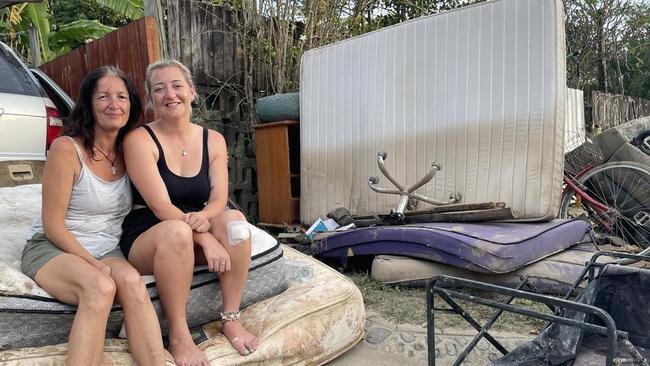
“I didn’t realise it was going to keep coming.”
They packed an essentials bag each with food, a change of clothes and phone charger, and threw the lot onto an inflatable raft from the pool, thinking they would be swimming out, but help came with tireless emergency service volunteers.
“It’s taking me ages because I didn’t qualify for grants as I work, I waited a fair while to get the essentials grant,” Ms Hood said.
She has only just cleaned the last room in her home.
“I’ve just tackled the laundry,” Ms Hood said.
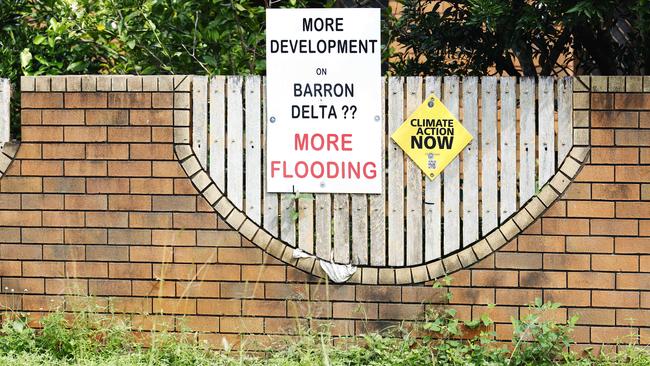
She said they were under pressure to get ruined goods out of the house in time for the council tip runs – but Ms Hood has also salvaged things such as doors and drawers from rubbish heaps, to restore and rebuild her home with.
She has a full house including a tradie who can’t return to his own home due to asbestos contamination, bunking down on the couch.
“People still have to earn an income and keep their job,” Ms Hood said.
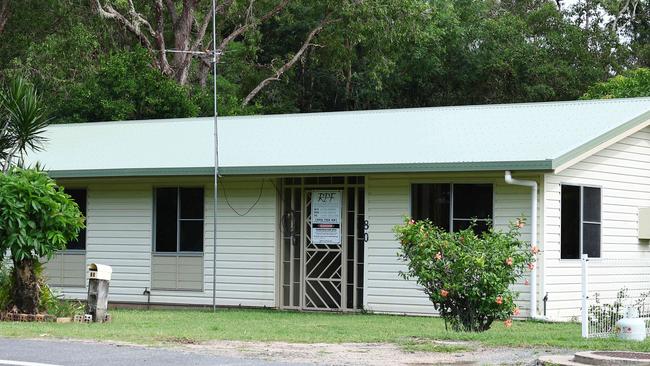
“The hub is closing at the end of the month, they’ve been really good, a lot of people have been displaced and didn’t have anywhere to live, we are all helping each other, and people are randomly nice,” she said.
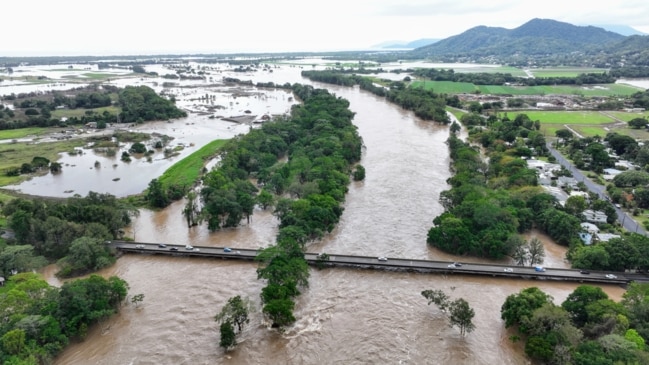
Women from another suburb have been doing a clothes washing and drying service for Machans Beach locals, and Ms Hood said they changed their time to after hours to suit those who worked.
“There are people who have developed illnesses afterwards, an elderly man had a health crisis from the stress, people’s health has decreased significantly,” she said.
Ms Hood, who lost precious items such as her daughter’s school photos, said many were coming to terms with loss.
“It was a lot more overwhelming than I thought, I’m a nurse working in acute areas, I’m good at controlling feelings, but once the flood was over I felt overwhelmed and it still feels overwhelming, but we have first world problems, we are not in a war zone,” she reasoned.
“At least nobody was injured, and a lot of good things have happened.”
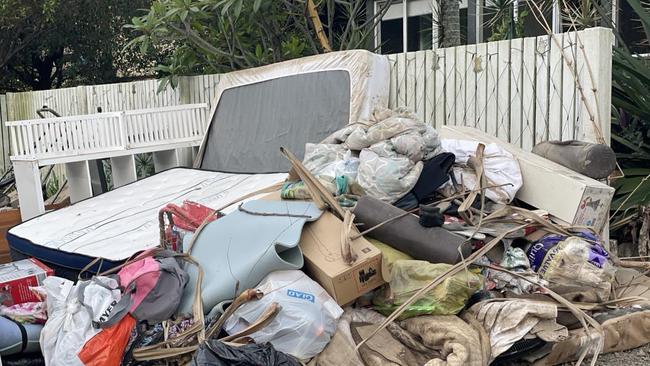
There was only one recorded loss of life from the catastrophe – 83-year-old Degarra resident Ray Dark’s home was demolished by the torrent and he has never been found.
Ms Hood likened the emotional impact to an unexpected death.
“There was no pre-warning, that makes it harder to cope with, it happened on such a large scale,” she said.
“I talk to people and they just cry, it’s not a softie chick thing, the guys are affected too.
“What I found is when you have a loss, it compounds all your previous losses, things that are buried and not resolved.”
She said she had a new appreciation for things such as lighting and ceiling fans.
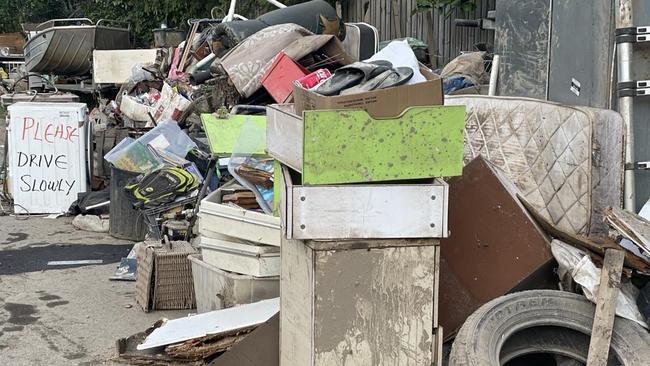
“It has taken so long, and it is still so bad, but it’s definitely brought people closer together,” Ms Hood said.
She was delighted when two elderly women from St Vincent de Paul turned up and said they may be able to assist with the ceiling and roofing.
“Locks on the front doors would be a priority – everything costs money,” she said.
“If you were just making ends meet, and then you lose what has taken you a lifetime to accumulate, it is a bit like a divorce.
“I try not to talk about it.”
More Coverage
Originally published as Six months’ after catastrophic flood, mental scars emerge



